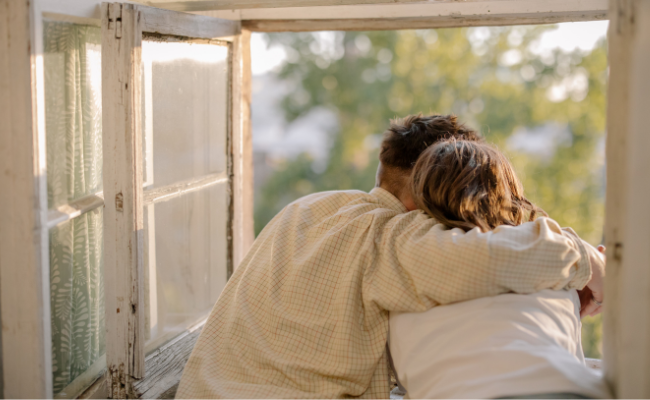Cuffing Season: Fully Explained
There’s a time of the year when the temperature begins to drop, and everywhere gets very cold, resulting in prolonged indoor activities. These colder months usually begin around October and end around April. People tend to feel lonely in the early winter and want to find a partner to make them feel good. This has resulted in a phenomenon known as cuffing season.
You might be willing to remain single, but, in this period, you feel the urge and yearn to curl up with someone next to the fire and sip a hot cocoa drink with that person. Of course, this would only last during winter, and when it’s spring, you desire to be a free single again.
Cuffing season is a time when warmth or coziness is the basis of the relationship. So, what does cuffing season mean? Here, we’ll talk about everything you need to know about it.
What is Cuffing?

Cuffing is when singles get into a relationship with someone to be “cuffed” or tied down with that person for a short time.
When is Cuffing Season?
Cuffing season is the year (autumn and winter) when singles are desperate and compelled to start a relationship that would help them through the cold nights. They seek warmth and comfort from someone.
It buttresses what Marisa T. Cohen, a Ph.D. holder, relationship researcher, licensed marriage and family therapist, and the author of From the first kiss to forever, said.
She says, “During the cold winter months, people would rather find one person to spend time with at home rather than leave the warmth and comfort of their homes and meet others for social gatherings.”
Why Do People Start Dating During Cuffing Season?
There are shorter days and less light in the wintertime, and the reality of seasonal affective disorder and depression is more prominent.
According to research, when the weather is cold, people feel lonelier. As a result, individuals psychologically seek warmth during this season and look to other people for connection and comfort, a good reason why people start dating during the cuffing season.
People look forward to physical intimacy in this relationship to keep them cozy. It improves their mood, keeps them from isolation and depression, and helps them to have fun.
Psychologist Angela Karanja confirms it. She said, “During the cold weather, people hardly go outside. There’s no sunshine, and there’s no motivation to go out and meet other people,”
“But we can say that cuffing relationship help with the release of endorphins and serotonin in the hormones responsible for happiness, mood balance, and a general sense of well-being, which is helpful.” She confirms.
She continued, “The cuffing relationship can also provide this sense of well-being albeit short-term.” She believes and made it clear that forming a new relationship during the darker and colder period or months of the year could help improve people’s well-being.
Are You Cuffed Up?
Here are a few signs to know that you are being cuffed up.
- You are not willing to introduce them to your family or friends.
- You hardly go out on a date.
- The foundation of your relationship is sex.
- There is no communication or deeper conversation, and the intimacy is physical, not emotional.
- There are no signs of a long-term commitment.
Things to Keep in Mind During Cuffing Season
Communication
In a relationship like this, it is very important to communicate. Have a conversation with the person you want to date, be clear about your expectations, and ensure you are on the same note as your partner.
Communicating with your partner from the beginning of this relationship allows them to react according to your needs knowing what you want. Be honest and define what you seek from your partner to avoid hurting anyone in the long run.
Don’t Rush
Please don’t rush into a relationship, nor should you be desperate to get into a relationship because you feel boredom or loneliness; it results in an unhealthy relationship. Be sure to like the person you want to be in a relationship with.
Know when to Set Boundaries
Make things simple for yourself and your partners. And you should know when to set boundaries, both emotional and physical boundaries. You can make it easy by listing what you are comfortable with and what crosses the line.
How often do you want to see your partner in a week, multiple times, or just on weekends? Would you prefer spending the night at your partner’s or your house, or would you like to keep your relationship reserved for public places?
Dr. Albers says, “Healthy boundaries in short-term relationships are quite similar to healthy boundaries in long-term relationships in that they have to be communicated and clear from the beginning.”
Enjoy it for what it is
It’s going to be for a short time, so you should enjoy this season for what it is. If you’ve both communicated and are sure you’re on the same note and your boundaries are set, then go ahead with the relationship and enjoy the moment.
And, of course, Take Safe Sex Precautions
You can feel uncomfortable discussing sex with your partner, but you must be on the same page. Be safe and use sex precautions correctly, like a condom, to prevent unplanned or unwanted pregnancy and sexually transmitted diseases (STIs).
How to Know if Your Relationship will Survive Past Cuffing Season
Your relationship can last beyond the cuffing season, especially if your partner is looking into the future with you. Below are signs to know if your relationship will last.
- You both prioritize your intimacy
- You want to always be with them or hang out during the day
- You communicate very well
- You make plans together about the future
- You’ve met with the family and friends
- Your family and friends love your partner
- You share goals and values
Conclusion
It is noticeable that winter is in full force since it is a season we spend more time cozying up indoors and less time roaming about, but that doesn’t mean you should be so desperate or pressurized to be in a relationship.
And, of course, remember that because you start your relationship during winter doesn’t mean that it will be for a long time or last. And if it would last, there are signs you should look out for mentioned above.



